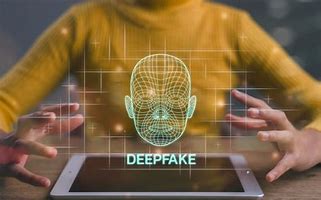Introduction
The artificial intelligence (AI) revolution is accelerating at an unprecedented pace, with two major contenders, DeepSeek and ChatGPT, vying for dominance in the next wave of AI innovation. While ChatGPT, developed by OpenAI, has become a household name for conversational AI, DeepSeek, an emerging model from China, is making waves with its open-source approach and cost-efficient AI solutions. This rivalry has sparked a heated debate over which model will lead the future of AI development.
This article explores the strengths, weaknesses, and potential impact of DeepSeek and ChatGPT in shaping the future of AI-driven innovation.

The Rise of ChatGPT
ChatGPT, created by OpenAI, is one of the most widely used AI language models today. It has set the gold standard for natural language processing (NLP) with its impressive ability to generate human-like text, assist users in various tasks, and adapt to different conversational contexts.
Strengths of ChatGPT
- Advanced Language Processing: ChatGPT’s ability to understand and generate contextually relevant responses makes it a leader in conversational AI.
- User-Friendly Interface: OpenAI has designed ChatGPT to be accessible to both individuals and enterprises, making it easy to integrate into applications.
- Industry Adoption: Major companies across various sectors, including healthcare, finance, and education, have integrated ChatGPT into their workflows.
- Ongoing Improvements: OpenAI continually updates its models, ensuring enhancements in response accuracy, reduced biases, and better performance across multiple languages.
- Proprietary Advantage: Being a closed-source model ensures a controlled environment, maintaining quality and security standards.
Weaknesses of ChatGPT
- High Operational Costs: The training and deployment of ChatGPT require significant computational resources, making it expensive for businesses.
- Limited Customization: Since it is a proprietary model, businesses have limited flexibility to modify or train the model for specific needs.
- Ethical and Bias Concerns: As with any AI, ChatGPT can produce biased responses based on the data it has been trained on.
The Emergence of DeepSeek
DeepSeek, an AI model developed in China, has emerged as a strong competitor to ChatGPT. Unlike OpenAI’s proprietary approach, DeepSeek takes a more open-source direction, making AI more accessible to developers and businesses alike.
Strengths of DeepSeek
- Open-Source Model: DeepSeek’s open-source nature allows businesses to modify and train the model as needed without licensing fees.
- Cost-Effective AI Solutions: By leveraging efficient processing techniques, DeepSeek reduces the cost of AI deployment, making it more attractive to startups and enterprises.
- Scalability and Customization: Organizations can fine-tune DeepSeek to better suit specific industry needs, a flexibility that ChatGPT lacks.
- Performance Optimization: DeepSeek employs advanced optimization techniques to achieve high efficiency with lower hardware requirements.
- Challenging AI Dominance: By providing an alternative to Western AI models, DeepSeek promotes competition and diversifies AI innovation.
Weaknesses of DeepSeek
- Computational Barriers: Although DeepSeek is open-source, it still requires substantial computing power to train and deploy, which can be a limitation for smaller businesses.
- Security and Data Privacy Concerns: Being developed under Chinese oversight, some businesses may hesitate to adopt DeepSeek due to concerns about data security and potential government intervention.
- Lack of Global Adoption: While ChatGPT has a global presence, DeepSeek is still in its early stages and has yet to establish itself in Western markets.

The Battle for AI Supremacy
The competition between DeepSeek and ChatGPT is a reflection of a broader debate in AI development: open-source versus proprietary models. Each model represents a different philosophy in AI evolution.
1. Innovation and Technological Advancements
ChatGPT’s rapid development has paved the way for more sophisticated AI applications, including AI-powered assistants, coding support, and automated customer service. OpenAI’s investments in reinforcement learning and deep neural networks continue to push the boundaries of AI capabilities.
DeepSeek, on the other hand, is exploring new ways to optimize AI inference and efficiency, making AI models more accessible to businesses that might otherwise struggle with the high costs of AI implementation.
2. Market Adoption and Accessibility
ChatGPT has already been integrated into various platforms, including Microsoft products and other SaaS solutions. Its adoption in business and consumer applications has given it a significant edge in market penetration.
DeepSeek, with its open-source advantage, is positioning itself as a cost-effective alternative that could appeal to developers, researchers, and businesses looking for customization and affordability.
3. Ethical and Regulatory Challenges
One of the major concerns in AI development is ethical responsibility. While ChatGPT is developed under strict guidelines to minimize bias and ensure responsible AI usage, its proprietary nature makes transparency difficult.
DeepSeek’s open-source nature provides more transparency, but it also raises concerns over potential misuse, security vulnerabilities, and a lack of regulatory oversight.
4. Global AI Influence
The rivalry between DeepSeek and ChatGPT is also a reflection of the AI race between China and the West. With AI being a critical component of future technological advancements, both models play a role in shaping geopolitical AI dominance.
- ChatGPT represents the Western approach to AI development, emphasizing controlled AI models, safety, and commercialization.
- DeepSeek represents the Chinese push for AI self-sufficiency, encouraging innovation within an open-source framework while challenging the dominance of Western AI firms.

Who Will Dominate the Next Wave of AI Innovation?
While both DeepSeek and ChatGPT have their strengths, the question of which will dominate the AI landscape depends on several factors:
- Enterprise Adoption: ChatGPT’s corporate partnerships give it an edge in large-scale deployments, while DeepSeek’s open-source flexibility appeals to developers and smaller companies.
- Technological Advancements: The pace of innovation will determine which model can maintain a competitive edge.
- Global Market Reach: ChatGPT has a stronger foothold worldwide, whereas DeepSeek is still expanding.
- Regulatory and Ethical Considerations: Governments and organizations may influence AI adoption based on security, privacy, and ethical concerns.
Conclusion
The competition between DeepSeek and ChatGPT marks a pivotal moment in AI evolution. Both models represent different visions of the future of AI—one proprietary and controlled, the other open and adaptable. While ChatGPT currently leads in global adoption and technological refinement, DeepSeek’s open-source approach presents a disruptive force that could reshape the AI industry.
As AI continues to evolve, the key question remains: Will its future be defined by proprietary innovation or open-source democratization? The answer may ultimately depend on how businesses, developers, and policymakers navigate the balance between accessibility, security, and technological progress.




